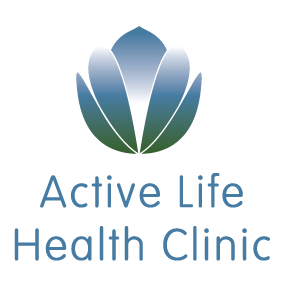Do you have tingling, numbness, weakness, or pain in one hand or arm? While it might be something related just to your arm or hand, it might also be stemming from your neck. These symptoms could be a sign of nerve impingement, a condition where a nerve is compressed or irritated.
Nerve impingement can be quite bothersome, affecting your daily activities and overall quality of life. Sometimes the pain gets so bad that even doing nothing hurts and finding a comfortable position to sleep becomes seemingly impossible. Other times, it means you have to take a break from some of your activities, like lifting weights, playing pickleball, or carrying a backpack. If you’re lucky, it’s just a bit of an odd sensation, like a slight numbness. No matter the severity though, it’s important to try to take the pressure off the nerve.
Understanding the Pinch: Neck Nerve Impingement
Before we explore how acupuncture can help relieve nerve impingement in the neck, let’s understand what causes this condition. Neck nerve impingement, also known as cervical radiculopathy, commonly occurs due to pressure on the nerves in the cervical spine (the neck region). This pressure can stem from various sources like herniated discs, bone spurs, or narrowing of the spinal canal. It can also be caused by muscles pinching a nerve—this is generally the easiest issue that acupuncture can treat—and adhesions or scar tissue.
These issues can happen because of a motor vehicle accident (MVA), a sport injury, a fall, aging and degeneration, repetitive movements, poor posture, or sometimes for unrecognized or seemingly minor reasons. I once had severe nerve impingement pain because of carrying my small dog and my purse while walking my other dog. It was something that was no big deal until it was.
Enter Acupuncture: Needles to the Rescue
Now, let’s shine the spotlight on acupuncture, a key player in Traditional Chinese Medicine (TCM). Acupuncture is highly recognized for its ability to relieve pain, improve circulation, relieve muscle tension, calm the nervous system, and speed healing.
When I had my nerve impingement, you can bet that acupuncture was the main treatment to bring me from not being able to even just sit still comfortably to getting back to all my activities without that pain.
How Acupuncture Works its Magic
Unlike magicians, most acupuncturists love to give away some of the behind-the-scenes clues about how acupuncture works. Firstly, if your nerve impingement is caused by tight muscles clamping down on a nerve, then let’s relax those muscles.
Acupuncture in a motor point, trigger point, knot, ashi (translated as “ah, yes!” sore point), or other related muscle-release point can reset the muscle so that it’s no longer defaulting to the contracted position. You might feel a muscle twitch, dull ache, or referral sensation when the spot is found. When we get the muscle to release the nerve it’s been squeezing, that’s the start of recovery.
Sometimes there are adhesions, areas where the nerves have become bound to surrounding tissues like muscles or connective tissues because of surgery or injury, including repetitive strain injuries. This prevents the nerve from being able to slide normally, and that can cause nerve damage. Acupuncture can help soften scar tissue, release adhesions, and improve circulation to the area.
By improving muscle balance, acupuncture can also help reduce nerve impingements by bony structures and herniations. What’s interesting is that though an MRI can show areas of narrowing for canals where nerves pass through, sometimes there are no symptoms in those areas; while at other times, areas of pain show no obvious reason on an MRI. So, getting an assessment of degenerative changes often doesn’t correspond to problems. The good news too is that by increasing circulation to damaged tissue, we can speed healing.
Not to be underestimated, calming the nervous system can also go a long way to relieving pain, relaxing tension, and improving healing times. If you’ve ever had acupuncture, then you likely know that blissed-out feeling you can get from acupuncture treatment, as endorphins (feel-good hormones) and other neurochemicals are released into your bloodstream and taken up by your brain.
Remember that even once the nerve impingement is released and the nerve is no longer being irritated, it still takes time for it to fully heal. I tell my patients, first you should have a reduction in your pain or intensity of symptoms. If muscle weakness is one of your symptoms, you may notice some strength return. But we’ll need to keep treating the affected tissue, get some blood flow back to the muscles and soft tissue, and support the nerve in its own healing process. Acupuncture can do this, but I may also recommend herbs, supplements, or specific foods.
Real-Life Results: The Power of Acupuncture for Neck Pain
I already mentioned my own story that acupuncture was key to relieving my neck nerve impingement pain and numbness, so let me tell another.
We’ll call him Ted because I don’t use real names. Ted was a guitar player and a boxer for fun but had a day job working at a computer. He had pain in his right arm (strumming arm, dominant arm), from the forearm to his thumb, index, and middle fingers. As a result of the pain, he had to cut back drastically on the hobbies he enjoyed (boxing and guitar playing), as he had to make sure he could keep working.

He had been treated elsewhere for “tennis elbow” (medial epicondylitis) but the pain persisted. I traced the issue back to his neck and we did acupuncture at his neck, his upper back, his right shoulder, arm, and hand, and some points elsewhere to treat his TCM diagnosis because even though he had a specific problem he wanted to address, I need to take into account the person as a whole.
It took just a couple of sessions to greatly reduce his pain, and then we focused on helping with his posture, supporting the healing of the injured nerve, and getting him on board with new habits that would hopefully help prevent this from recurring.
Science Speaks: What Research Says
But don’t just take Ted and my word for it; let’s turn to scientific studies. Research on acupuncture for neck pain suggests that it can be an effective treatment option, with studies showing improvements in pain intensity, functional mobility, and overall wellbeing. A meta-analysis published in JAMA Internal Medicine found that acupuncture is more effective than conventional treatments for chronic neck pain.
It can also speed up the repair of nerves after nerve injury, as discussed in Frontiers in Cellular Neuroscience.
The Holistic Approach: Integrating Acupuncture into Your Wellness Routine
When it comes to managing neck nerve impingement, it’s essential to adopt a holistic approach that addresses both the symptoms and the root cause of the issue. Acupuncture offers a gentle yet powerful way to complement other treatments like rehabilitation exercises and lifestyle modifications. By incorporating acupuncture into your wellness routine, you can enhance your body’s innate healing abilities and promote long-term relief.
Embracing the Time-Tested Wisdom of Acupuncture
As we unravel the mysteries of neck nerve impingement and seek effective solutions, acupuncture emerges as a beacon of hope—a time-tested therapy that harnesses the body’s natural healing mechanisms. Exploring the benefits of acupuncture for neck pain can open up new possibilities for pain management and overall well-being.
Whether you’re thinking, “It’ll go away on its own,” “I guess it’s just something I’ll need to live with,” “I can give up that activity I love,” or “I’ve tried everything,” if you haven’t come in for TCM acupuncture alongside lifestyle modifications, maybe it’s time.

